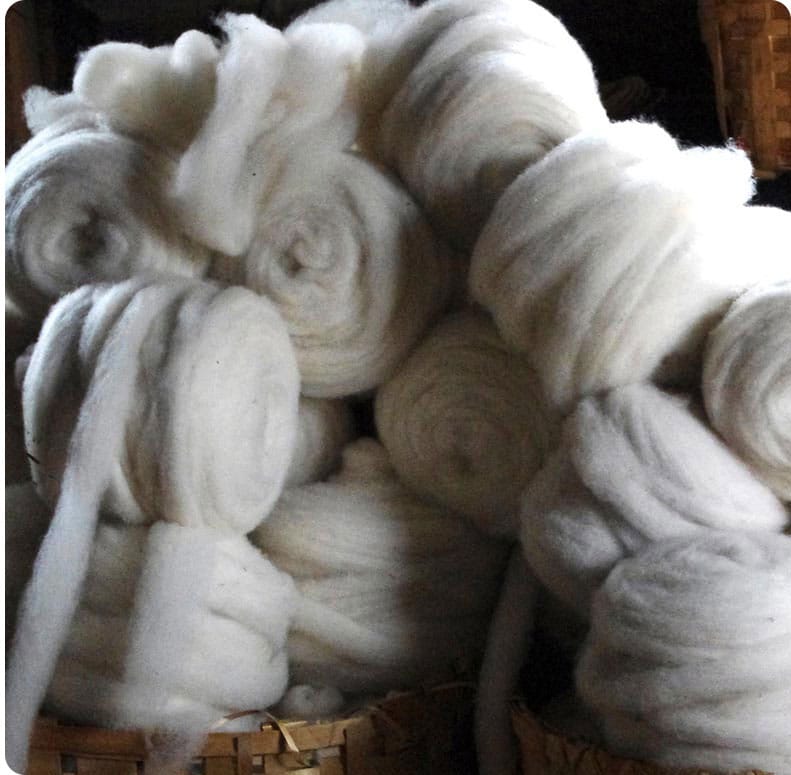During our manufacturing process, roving – a continuous strand of carded fiber – is drawn out to a consistent thickness but left unspun, making it an ideal intermediate product for both industrial roving fiber and commercial textile applications. Our roving is engineered for dimensional stability, fiber alignment, and uniform weight to ensure reliable downstream performance for spinning, felting, or composite manufacturing.

Consistency and Quality are Key in the Roving Process
We produce roving from a range of natural and synthetic fiber blends, including wool, alpaca, nylon, polyester, and aramid fibers. The fiber blends are tailored to meet specific technical requirements across various industries, with an average weight consistency of 23 yards = 1 pound (16 oz), and an average weight per yard of 0.70 oz.
Our roving fiber is used in a variety of industrial applications, including:
- Yarn spinning for commercial and industrial textiles
- Needle felting and nonwoven fabric production
- Composite reinforcement
- Filling or padding for industrial use
Pencil Roving And Fiber Width Control
The width of the roving is determined at the start of the process. Thinner roving is sometimes referred to as “pencil roving”, a thin, soft, untwisted strand of fiber, about the thickness of a pencil — hence the name. Pencil roving is more refined than the wide carded batts used in felting, but it is not yet yarn because it hasn’t received a twist. We manufacture pencil roving on a regular basis to create various types of yarn within our facility.
Whether the roving is made in thick strands or thin like a pencil, we maintain tight tolerances in fiber distribution and weight, ensuring compatibility with automated systems and manual processes alike. This attention to consistency enhances product integrity and operational efficiency for our customers.

